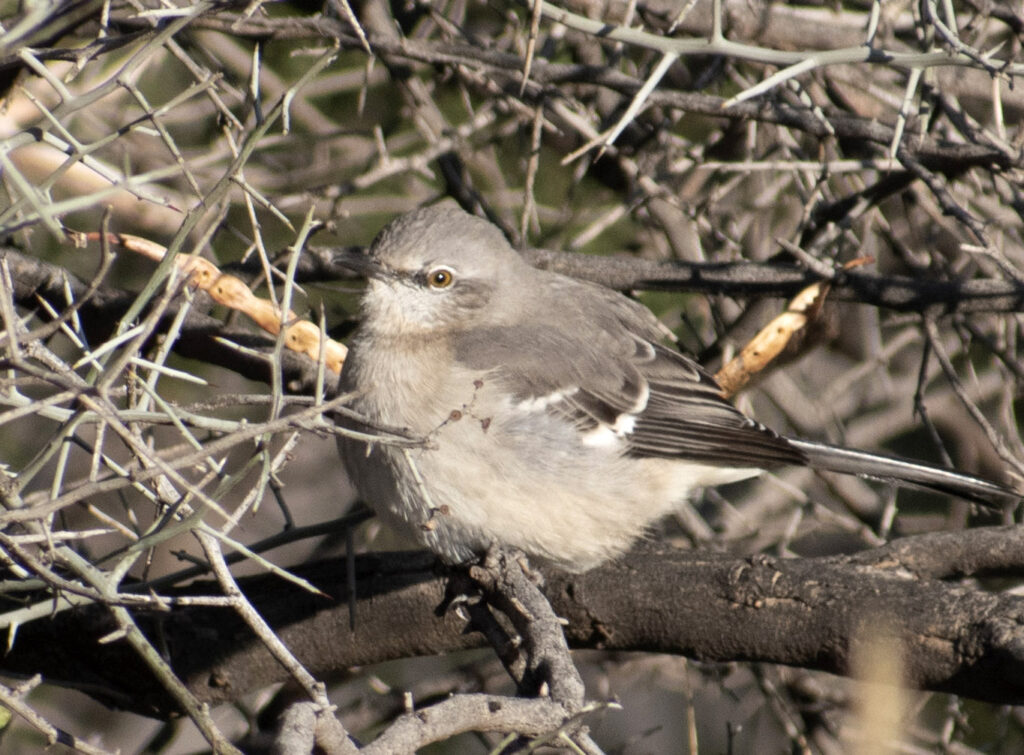By Grace Huffman

While they are much quieter in winter, they are still around and making noise, and come spring they will be back to belting out their songs as loud as they come, some even singing all night long.
Northern Mockingbirds can be found from far southern Canada down throughout the lower 48 and into Mexico and the Caribbean. They are mostly non-migratory, with some moving into southern Mexico every winter. Here in Oklahoma there’s a good chance you’ve seen one in your backyard, as they can easily be found in urban areas where there are shrubs, bushes, and other cultivated land. If you have bushes or other plants that grow berries, those will be big draws this time of year, when their other main food source (insects) is almost nonexistent.
In the summer, you’ll see them running around on the ground scaring up insects by running a short distance, then raising their wings and flashing their wing patches. Males will be singing from high, exposed perches and often fly up above their singing perch and float back down, showing off those wings. Single male birds will sing more often, and even sing all night long until they find a mate. When fall comes, they continue to sing, and studies seem to indicate they may have a different set of songs for fall than they do for spring.
Once they do find a mate, the male will start several nests but the female will choose the final location and finish the nest at her preferred spot. She’ll build a cup nest that may end up being lined with trash such as plastic. Once the babies leave the nest, the female will sometimes start laying eggs in a new nest, while the male continues to feed the young from the first brood.
Conservation efforts indicate that mockingbirds have actually been in a slight decline, but they are still very common and very resilient, having survived the 1800s, when many were trapped and sold as pets for their singing. Maybe you’ll see one the next time you look out your window!
References: allaboutbirds.org
